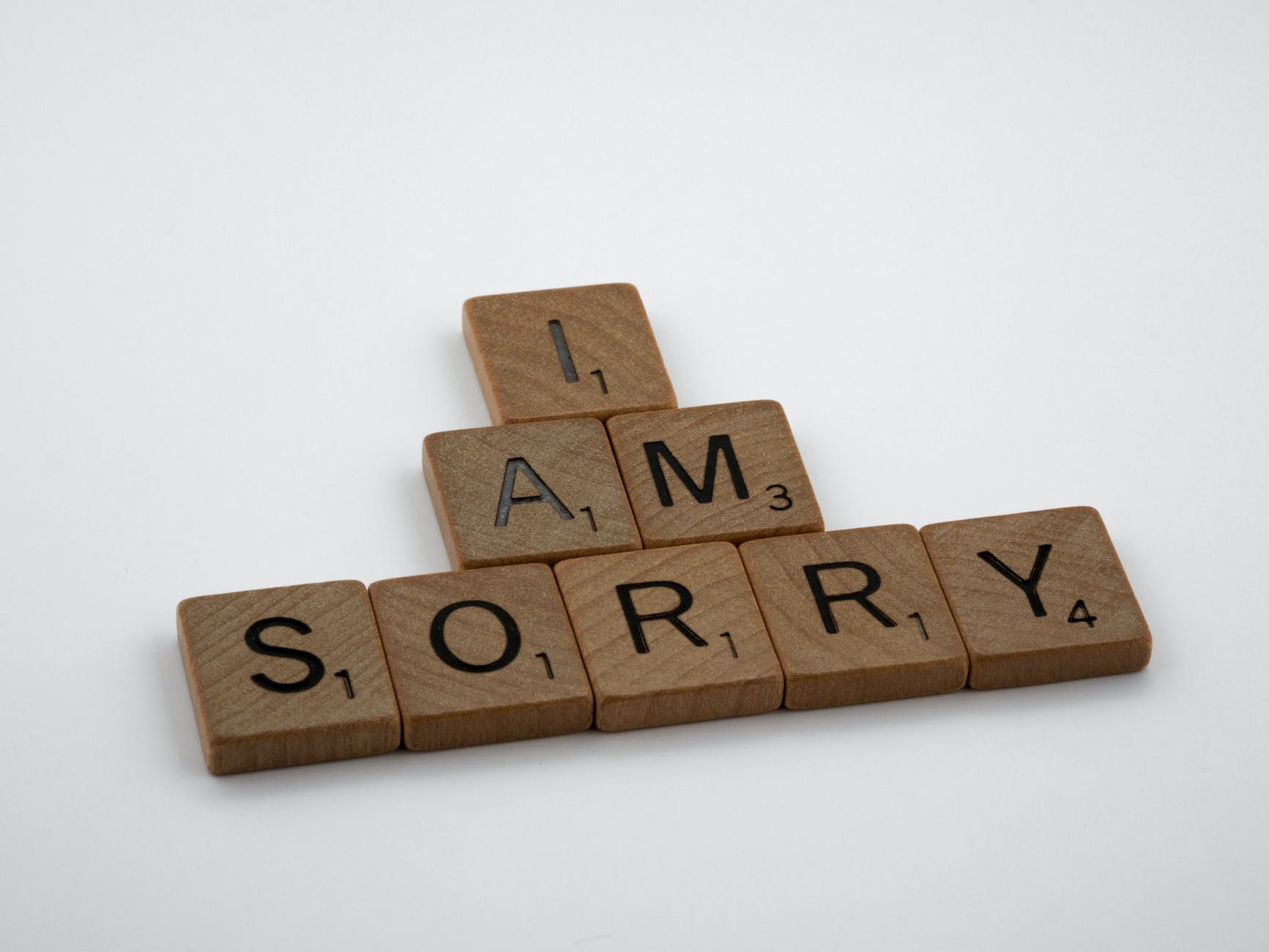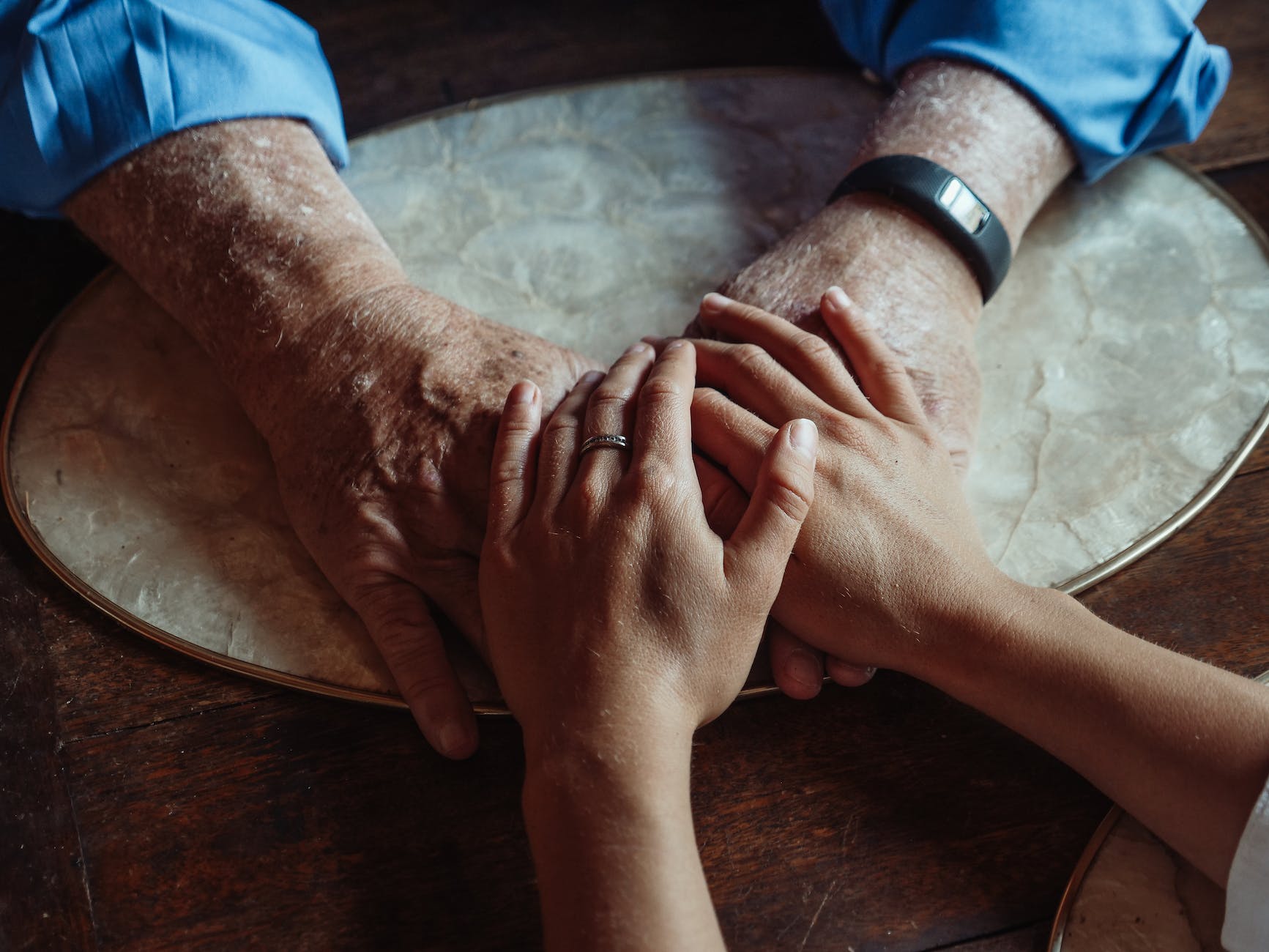One of the best things you can do for a happy life and a good death is to learn how to make meaningful amends. Apologizing in a heartfelt way is a skill and an art. Typically, the benefits of forgiveness are felt by the person doing the forgiving.
As a death doula, I see those benefits in a new and powerful way.
What Haunts People When They’re Dying?
Everyone is different in life and death. I’ve never seen any two deaths that are exactly alike. However, if there are any commonalities among people at the end of their lives, perhaps it’s this:
1. The harm you do to others comes back to you.
2. The kindness you do to others comes back, too.
3. Harmful actions seem to weigh more.
Many death workers report the same thing. It’s interesting to note that the five essential statements people feel compelled to make before they die (I love you, I forgive you, thank you, I’m sorry, and goodbye) can be said anytime.
Let’s explore how to apologize.
How to Say You’re Sorry
Many people struggle with unresolved issues as they get older. You don’t have to be actively dying to want to right your wrongs. Feeling a responsibility to atone for sins or misdeeds can happen at any time, dying just adds a sense of urgency to it.
If my client is struggling with the past, and they wonder out loud about solutions, I often gently encourage meditation, therapy, and making amends. When we’re young and healthy, we think trauma resolves itself. This doesn’t always happen.
I watch dying people struggle with something they haven’t resolved along with half a dozen other end-of-life issues.
This is sad to watch.
Your final days are easier if you’ve done the work before an illness takes hold. Resolve mistakes while you have the energy and time to devote to them.
Because if you don’t deal with what you’ve done to others…it’ll come back for you.
What exactly comes back? Some clients say they’re most haunted by the times when they were cruel to people who did not deserve it. They’ve let someone special slip away or didn’t spend enough time with loved ones when they could. These regrets appear to hurt the most.

Acts of Lovingkindness
I often encourage clients to write down all the ways they’ve shown love or compassion to others. I ask them to describe these experiences and memories to me.
For my clients at the end of life, remembering their good deeds brings comfort. They talk about the time they’ve spent with their family. They remember ways they’ve helped others in need.
Forgiving loved ones also brings a great deal of joy. We discuss the times they’ve reached out to estranged friends and reconnected.
They are also visibly relieved when sharing thoughts about the times they’ve already made meaningful amends for a mistake.
These direct, concrete actions help people feel good about themselves. More than the money they’ve given away. More than career or athletic achievements.
The people most at peace are the ones who’ve given of themselves.
Bad Deeds Don’t Go Away
Over the last thirty years, I’ve worked or interacted with some of the richest people in the world. Despite enormous wealth and professional success, there is a certain drive to so many of them. A drive…and a sadness.
Their money doesn’t bring them much happiness. And while donating money to worthy causes is noble, that doesn’t seem to help people feel better about past transgressions. Philanthropy doesn’t erase anything.
The penance that appears to make the most difference to people as they die is the personal connection they’ve made with people they’ve wronged. Not the money they’ve used to try to cover it up. My clients who refuse to seek absolution tend to be the most haunted, especially at night.
It doesn’t have to be that way. Saying you’re sorry can help you in so many ways.
Do The Work
Apologizing effectively involves expressing genuine remorse, taking responsibility for your actions, and showing a commitment to making amends. Here are some steps to make your apology meaningful.
Acknowledge Your Mistake
There is a big difference between, “I’m sorry you feel I’ve wronged you” and “I’m sorry.”
Start by acknowledging and admitting your mistake. Avoid making excuses or blaming others. Instead, take full responsibility for your actions.
Express Genuine Remorse
Show sincere regret for the impact your actions may have had on the other person. Use language that conveys your emotions and communicates that you understand the gravity of the situation.
Be Specific
Clearly articulate what you are apologizing for. Provide details about the specific actions or words that caused harm. This demonstrates that you’ve thought about the situation and understand the details of your mistake.
Listen Actively
Give the other person an opportunity to express their feelings and thoughts. Be attentive and empathetic. Avoid interrupting or defending yourself while they are sharing their perspective.
Empathize
Put yourself in the other person’s shoes and try to understand how your actions may have affected them. Express empathy for their feelings and demonstrate that you care about their well-being.
Offer a Genuine Explanation
If there is a legitimate reason for your actions, explain it briefly and honestly. However, be cautious not to use this as an excuse, as it should complement your apology, not undermine it.
An apology sometimes means more if you explain what happened. Were you going through a tough time yourself? Talk about that.
Again, this isn’t an excuse. Truthful explanations simply help people understand you better. Most of us can empathize with a tough time that leaves someone feeling frustrated. Saying something you later wish you hadn’t – is almost universal. Appealing to someone’s humanity is important if you want them to understand that you didn’t do it on purpose.
Commit to Change
Outline the steps you plan to take to prevent the same mistake from happening again. This may involve changing your behavior, seeking guidance, or taking specific actions to address the issue.
Give back what you owe.
A donation somewhere else doesn’t help the person from whom you’ve taken something. It’s good to pay it forward but first pay it back.
Ask for Forgiveness
Humbly request forgiveness but understand that the other person may need time to process their emotions. Be patient and respect their feelings, even if they’re not ready to forgive immediately.
I often tell my clients that what the other person does with their apology is none of their business.
Let that be a relief. After all, you can only control yourself. If you’ve wronged someone and they aren’t ready to forgive you, that can sting. We naturally want to be met with open arms.
But there are many reasons why the person might not respond favorably or at all.
Maybe he has some evolving to do. Maybe she forgave you years earlier and has no desire to go back and revisit the issue. Perhaps they’ve moved on and want to keep going.
Whatever it is, you are only responsible for yourself. We’ve all made mistakes. If you can face up to them, and tell someone you’re sorry in a meaningful way, your work is done.
Follow Through
Once you’ve apologized, follow through on your commitment to change. Take concrete actions to demonstrate your sincerity to make amends. Consistency is crucial in rebuilding trust.
Learn and Grow
Use the experience as an opportunity for personal growth. Learn from your mistakes and strive to become a better person. Demonstrating this can be a powerful element in rebuilding trust.

Forgive Yourself and Others
Like anything else, saying you’re sorry in a proper way takes work. Remember, an effective apology is not just about saying sorry but also about demonstrating a genuine desire to make things right and learning from the experience.
That’s part of the process.
There isn’t a goal here, beyond saying you’re sorry to someone because you must. But if you would like to be forgiven, perhaps you should put some thought into forgiving others first.
Who has wronged you? Have you thought about them? Did they apologize? How did you respond? Did you accept their apology with grace? Or did you ignore them?
If someone has made amends to you, maybe reach out to them and respond in a way that you’d like to hear. Let them know they’ve been forgiven. That’s a powerful gift to give someone. It doesn’t mean that others will model your behavior and forgive you, but you’ll feel better about asking for something you’ve already given to others.
Be the hero of this story. Forgive others and learn how to make meaningful amends while you can.
And then rest easy.
Contact me at Anitya Doula Services for support anytime.



6 thoughts on “How to Make Meaningful Amends”